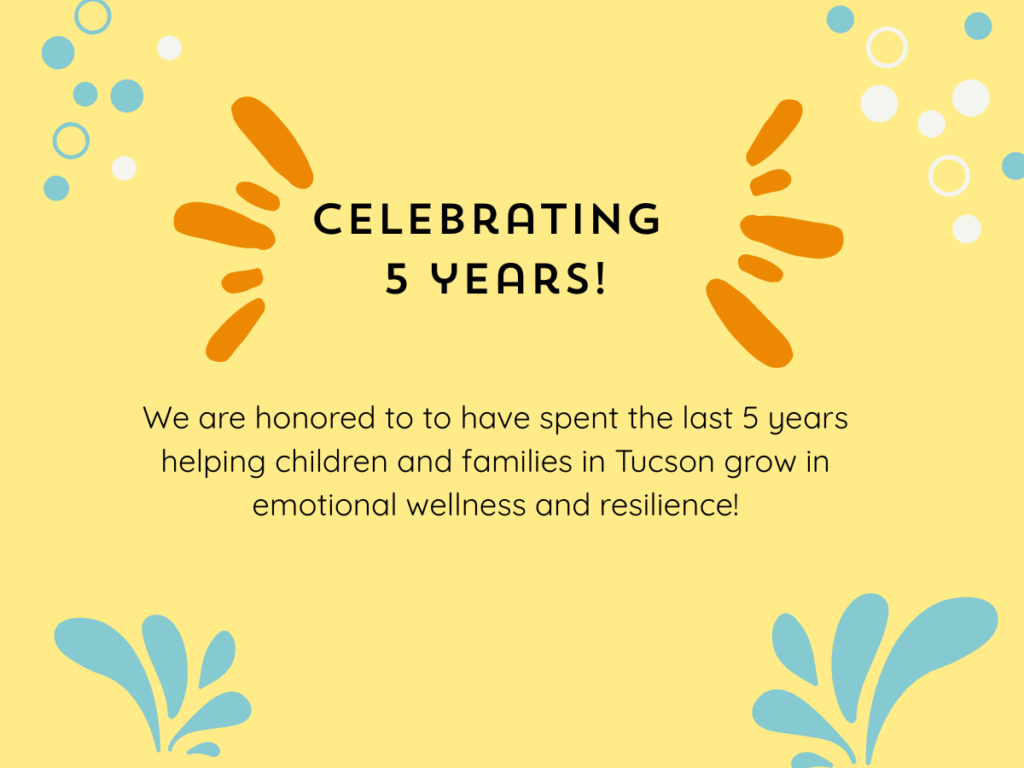
Our Beloved City, Tucson. Our Compassion for the children and families in our Community. 5 Years of empathic connection, trust and safety.
We love our Southern Arizona community and that’s why we provide child and family therapy in Tucson that cultivates resilience and emotional wellness. We are committed to the families in Tucson and that is why we are taking the month of May to celebrate 5 years of Resilience Therapy’s impact! We have served over 500 families across southern Arizona including Tucson, Marana, Sahuarita, Vail & Oro Valley. We have seen the transformation of children’s, teens’ and families’ lives during their engagement in therapy and we feel honored to be a witness and helper in such wonderful growth and healing. We absolutely love the work we do and the relationships that we have the privilege to develop.
In between serving clients, we love to experience what this wonderful city has to offer such as go on hikes and bike rides, attend wildcat basketball games, savor the local cuisine and enjoy the Tucson Rodeo. We are proud to make our community stronger one family at a time through cultivating emotional wellness and resilience and creating spaces for hope and healing. The growth we see in the lives of children and families inspires us everyday. We look forward to investing in relationships with children and families in Tucson over the next 5 years and can’t wait to see the transformation that takes place.
What is one thing you love about our Tucson community?
Want to learn more about therapy for your child? Sign up here for a free consultation!

